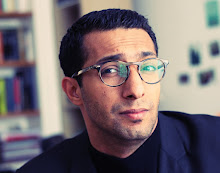New cultural institute will help Syrians to integrate
June 11th, 2015 10:58 am| by Jenna Kleinwort
Board member explains how the new organisation can help new arrivals
Interview with Jan Pêt Khorto
What are the main objectives of the Syrian Cultural Institute in Denmark?Many of the Syrians who arrive to Denmark have high educational backgrounds or other mentionable skills and work experience. The institute was established to assist these refugees in developing their skills and to help them to be a ‘useful’part of the Danish society.
This can happen through both social and educational activities. Besides that, the institute aims to establish a network of Syrians and Danes that can assist local Danish governments and educational institutions in implementing activities that foster social integration.
In general, the institute aims to enhance competences and capacities of Syrian refugees and in this way to prepare them for a life in Denmark, and for a future role and responsibility in the re-establishment of a democratic Syria at peace.
Have you had much success so far?Prior to going public, the institute had a pilot project where we invited some Syrians who just came to Denmark to attend a week of cultural exchange activities together with Danes at Vallekilde Højeskole.
This project aimed to introduce those Syrians to a new type of educational system, i.e højeskole systems, together with helping them to have face-to-face encounters with Danes, where they talk, eat and share experiences.
The project was a success, and all the attendees, as well as school employees, were extremely pleased. This is just one example of things that can be done to help Syrians to be easily integrated in the Danish society.
What are the main difficulties and challenges for Syrians when trying to integrate in Danish society?Social values and cultural differences are the first difficulties for anyone coming to Denmark from a Middle Eastern country.
Denmark is an individualistic society, with the individual often being more important than the family as a whole. In the Middle East, however, family is given a different importance and value.
One example of cultural difference is, for example, the way of addressing each other. While it is unacceptable in Syria to call someone you don’t know well by their first name, this is quite usual in Denmark. Here, even teachers and pensioners are addressed by their first name.
What has your personal experience been?When I came to Denmark, my journalistic and educational background made things a lot easier. Due to the fact that I speak and understand several languages, it was easier for me to engage in several activities and build a network. It also helped me to write and publish my third poetry collection, ‘Helvedes Fristelser – når skjulte hjemlande nedpakkes i tasker – digte’.
This, together with my aspiration to continue education motivated me to be more active in my life here in the diaspora. Therefore, I have decided to achieve an academic career, which will help to establish a better understanding between the East and the West, and in this way to help building the future Syria.
What is your relation to Syria now? Have you ever been back?Due to my political refugee statues, I haven’t been able to visit Syria since I left, and then the war started. Now I am a board member at the Syrian Cultural Institute in Denmark, which means that I have in some ways direct and indirect links to where I come from.
Emotion is not my best friend, and therefore I try to deal with my reality rationally, which will help me to achieve my future plans. Therefore, I try to avoid thinking about my jail period and instead focus on helping other Syrians. Ultimately, it is important to be positive and optimistic, and to help others who come from a warzone to do the same.



No comments:
Post a Comment